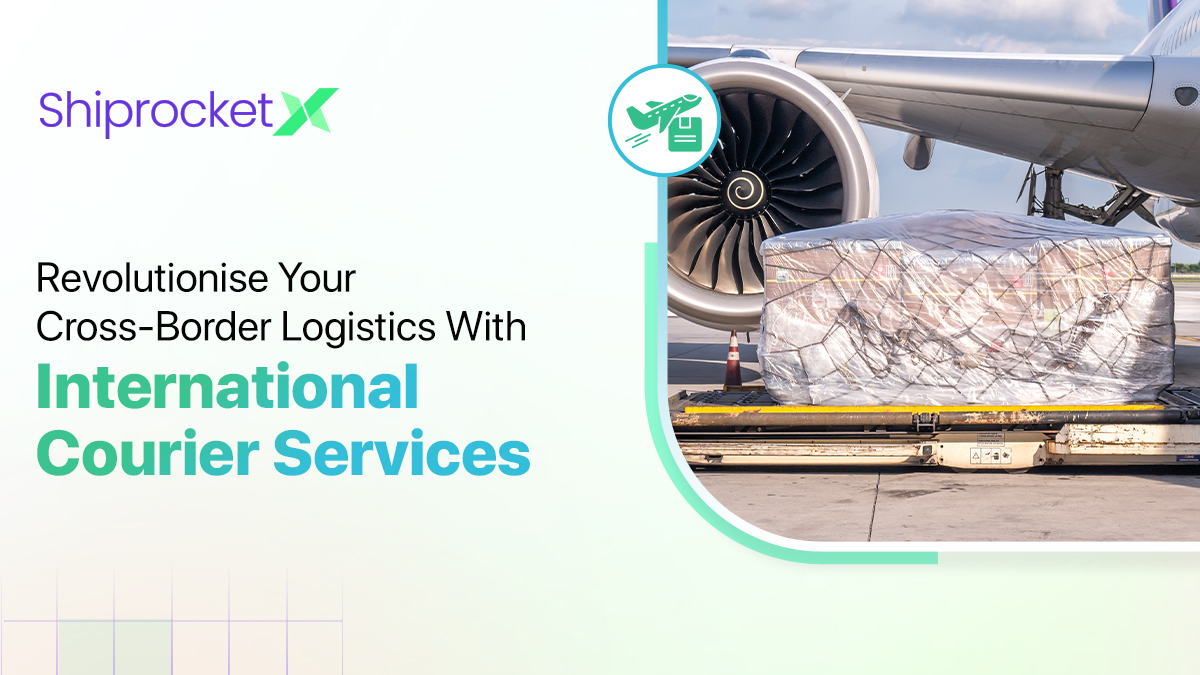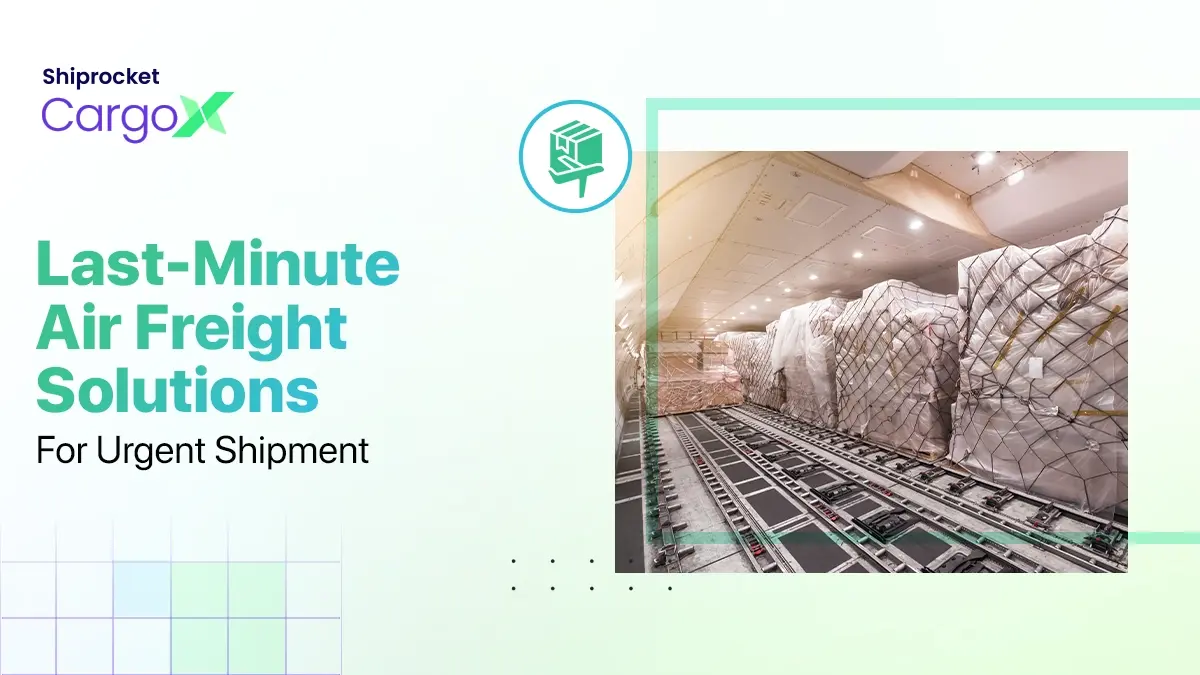Shipping and Logistics: Definitions, Importance, and Opportunities
This is the ultimate guide to why and how you should use shipping and logistics to drive the growth of your online business! How does something as unlikely as ‘shipping’ turn around your business? Surprisingly, a satisfying customer experience with order deliveries has led to more engaged customers who remain loyal to the brand. According to Statista, the American customer satisfaction index (ASCI) rose to 76% in 2022 due to accurate and no-delay deliveries by providers such as FedEx. Hence, the importance of shipping and logistics cannot be understated.
In this article, we will understand shipping and logistics, define it, identify its importance, and the opportunities it offers for direct interaction between businesses and consumers.

Defining Shipping and Logistics
Shipping means transporting or moving goods from the point of origin to the end consumer or buyer. This is the physical shifting of goods using multiple vehicles depending on the destination and weight of the product. But the physical movement from origin to destination has to be planned and coordinated between the various stakeholders.
Logistics is the planning needed to integrate all these service providers seamlessly, ensuring order deliveries are accurate and on time. Thus, the planning to acquire, store, and transport goods to their final destination is defined as logistics. Supply chain, first-mile delivery, drayage and end-customer shipments are some of the stages of a shipping and logistics life cycle.
Now that we know the definition of shipping and logistics let us understand their importance in today’s economic activities.
Importance of Shipping and Logistics
Shipping and logistics are crucial components of modern global trade and commerce. The importance of shipping and logistics is:
- Shipping and logistics make transporting goods quickly and efficiently over long distances possible. It is essential for businesses that operate globally and must move products from one country to another. Efficient transportation also helps to reduce the cost of goods, making them more affordable for consumers.
- Shipping and logistics enable businesses to manage their inventory effectively. By using advanced technologies and sophisticated software systems, logistics companies can track shipments in real-time, monitor inventory levels, and optimise routes to ensure that products are delivered on time and at the lowest possible cost.
- Shipping and logistics play a vital role in supporting international trade. It drives cross-border trade, and economic growth, creates jobs, and promotes innovation.
- Shipping and logistics offer sustainable transport practices. By using energy-efficient vehicles, optimising routes, and reducing the number of empty trucks on the road, logistics companies can minimise their carbon footprint and contribute to a more sustainable future.
Hence, shipping and logistics enable businesses to deliver their products to customers, access new markets, and build an interconnected global economy.
Now, let us look at optimising shipping and logistics for business growth.
How to Optimise Your Shipping and Logistics?
Optimising your shipping and logistics operations can help you reduce costs, increase efficiency, and improve customer satisfaction. Let us consider some factors to help you optimise your shipping and logistics:
- Use technology: Implementing a transportation management system (TMS) can help you automate many logistics processes, including routing, carrier selection, and shipment tracking.
- Consolidate shipments: Consolidating shipments can help you reduce transportation costs by filling trucks more efficiently and reducing the number of empty miles.
- Optimise packaging: Choosing suitable packaging for your products can help you reduce damage and minimise shipping costs.
- Negotiate rates: Negotiating rates with carriers can help reduce transportation costs and improve your bottom line.
- Monitor performance: Tracking key performance indicators (KPIs) such as on-time delivery, transportation costs, and inventory accuracy can help you identify areas for improvement and optimise your logistics operations over time.
By implementing these strategies and continually monitoring your performance, you can optimise your shipping and logistics operations and achieve better outcomes for your business.
What are the Opportunities Shipping and Logistics Offer?
Shipping and logistics offer several opportunities for businesses to improve their operations, increase efficiency, and grow their customer base. Here are some of the critical options that shipping and logistics can provide:
- Expand your customer base: It enable you to sell your products to customers worldwide, opening up new markets and expanding your customer base.
- Improve customer satisfaction: By optimising your shipping and logistics operations, you can improve delivery times, reduce shipping costs, and provide a better overall customer experience.
- Increase efficiency: Implementing advanced logistics technologies and streamlining your operations can help you reduce costs, improve inventory management, and increase efficiency.
- Enhance supply chain visibility: By using technologies such as RFID tags, GPS tracking, and barcodes, you can gain real-time visibility into your supply chain, enabling you to make more informed decisions and respond quickly to changing market conditions.
- Achieve sustainability goals: Shipping and logistics companies are increasingly focused on sustainability, offering opportunities for businesses to reduce their environmental impact by using more sustainable transportation modes and reducing waste.
- Collaborate with partners: Shipping and logistics operations often involve collaboration with partners such as carriers, suppliers, and logistics providers, offering opportunities for businesses to build strong partnerships and leverage each other’s strengths.
Overall, shipping and logistics offer businesses a range of opportunities to improve their operations, increase efficiency, and grow their customer base. Companies can succeed tremendously in today’s competitive global marketplace by taking advantage of these opportunities.
Takeaway
Shipping logistics is a critical part of every business. Optimising logistics will drive higher customer satisfaction, improve sales and boost your business. Work with a third-party logistics partner like Shiprocket to streamline your shipping operations and use the latest technology and automation tools. With the right shipping logistics strategy, you can focus on what matters most – building a solid and lasting brand that your customers love.
Ship Your Business in the Right Way. Click here to get started.
Shipping refers to the transportation of goods from one place to another. In contrast, logistics encompasses managing the movement of goods, including planning, implementing, and controlling the shipping process. Logistics also involves coordinating with various parties involved in the shipping process, such as carriers, customs officials, and freight forwarders, to ensure that the shipment reaches its destination efficiently.
When choosing a shipping company, businesses should consider the carrier’s reliability, cost-effectiveness, and range of services. Businesses should also assess the carrier’s ability to handle the specific type of goods and their capacity to transport the goods to the intended destination in a timely and safe manner.
Companies can optimise their logistics operations by implementing a range of strategies, including using advanced logistics software to manage the entire shipping process, utilising data analytics to identify inefficiencies and areas for improvement, and adopting lean manufacturing principles to streamline the supply chain. Businesses can also partner with logistics providers offering customised solutions tailored to their needs and requirements.
Globalisation has led to an increase in international trade and the movement of goods across borders, which has, in turn, led to significant growth in the industry. However, the complex regulatory environment and the need to comply with different laws and regulations in other countries have also presented significant challenges for logistics providers. To overcome these challenges, logistics companies have had to adapt by developing new technologies and processes that enable them to navigate the complex global logistics landscape.





